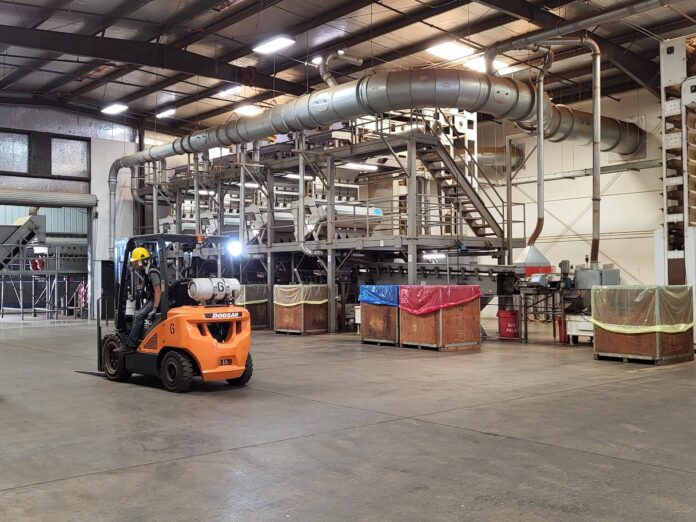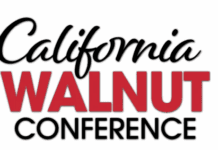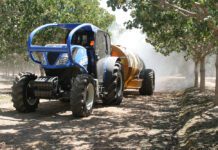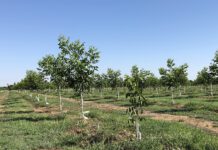
In November, the California Air Resources Board (CARB) released the latest draft of the proposed Zero-Emission (ZEV) Forklift Regulation. It subsequently announced the Board will conduct a public hearing on June 27, 2024 to consider the proposed regulation, which would eliminate the use of Class 4 and Class 5 internal combustion forklifts and convert fleets over to ZEV forklifts. Certain types of forklifts like rough-terrain forklifts and diesel forklifts are not addressed by the proposed regulation.
Our Efforts
Since the initial draft proposal in 2020, Western Agricultural Processors Association (WAPA) has led a coalition against the State’s effort to eliminate propane forklifts. In the past couple years, we have held multiple full day facility tour visits and meetings to educate CARB staff on the consequences this regulation could have on agriculture and supporting businesses. These site visits have been the turning point for some of the requirements and caused CARB staff to pause and make necessary adjustments. Through our efforts, rough terrain forklifts were excluded from the regulation and agricultural operations have a longer and delayed timeline for compliance for the remaining forklifts that will begin Jan. 1, 2029 and conclude in 2038.
We have a statewide system constraint when it comes to electrical infrastructure. Our current system does not provide for today’s needs in certain parts of the state, especially rural areas, and certainly is not prepared for the incoming load with the conversion to electric forklifts, trucks, commercial vehicles, etc. These site visits highlighted this very issue. We visited facilities who are currently running entire operations on natural gas generators because their utility provider simply cannot provide power. Another tree nut facility estimated it would need to devote $2 to $3 million in facility/substation upgrades to support the conversion of their 75-forklift fleet to electric.
CARB has recognized this barrier and is allowing for an initial 3-year infrastructure extension and consequent yearly extensions up to 2038 if the utility provided is not able to provide power for EV fleet charging. Other delay extensions included in the proposed regulation are equipment delays and construction delays among others. If you are unable to secure a ZEV forklift prior to your compliance date, you can request a one-year delay until 2038 if needed.
Proposed Regulation in a Nutshell
- Applies to Large Spark-Ignition (LSI) forklifts (with a few exceptions)
- Compliance begins in 2026 for large fleets (Small Ag Operations in 2029)
- Low-use exemption for forklift operated less than 200 hours per calendar year (Sunsets in 2031)
- Microbusiness can operate a low-use LSI forklift past 2031
- New Class 4 LSI forklifts cannot be manufactured or sold in CA after Jan. 1, 2026
- New Class 5 LSI forklifts cannot be manufactured or sold in CA after Jan. 1, 2029
- Rental of LSI model year forklifts that have been phased out is prohibited
- Initiate conversation with utility provider of potential electrical service installation or upgrades by April 2026 for large facilities
Extensions due to the following:
- Delivery delay
- Infrastructure/construction delay
- Infrastructure site electrification delay
- Technical infeasibility delay
- Initial reporting requirements by April 2026 for large fleets and yearly thereafter. Small fleets and Ag Operations will be by September 2023.
- ZEV and LSI forklifts must be labeled with EIN number assigned by CARB
Outstanding Issues
There are many sections of the proposed regulation we strongly oppose such as the reporting requirements. The information requested to be reported is onerous, unnecessary and will become public record once submitted. All information submitted can be accessed through a records request through the Freedom of Information Act. We strongly feel for security reasons this information should be kept private.
As proposed, the phaseout schedule could require a fleet to convert over many of their forklifts depending on the model years of the fleet, which can cause an overburden on any business. CARB released the Standardized Regulatory Impact Assessment, which uses data that is not reflective of our businesses. They suggest the cost of electricity to be an average of $0.17 kwh and expect it to decrease over time. We highly disagree as PG&E and SCE have recently requested a 45% increase in the lates general rate case.
Next Steps
CARB stated, “The Proposed Regulation has been identified in the 2016 State Strategy for the State Implementation Plan, the 2016 Mobile Source Strategy (MSS), the 2020 MSS and the Sustainable Freight Action Plan as one of several measures necessary for California to achieve its established air quality and climate goals.” The public comment period for the regulatory action began on Nov. 10, 2023. Written comments are due by Dec. 26, 2023.
The Association is coordinating a joint effort with other agricultural organizations to compile joint comments against the proposed regulation. The Notice, Initial Statement of Reason and all subsequent regulatory documents are available on CARB’s Rulemaking page.
We will continue to fight this regulation.











